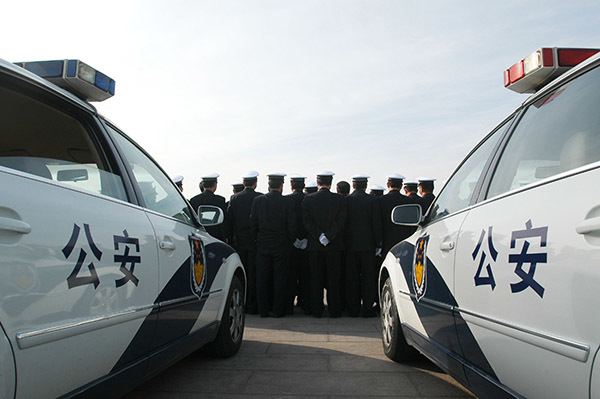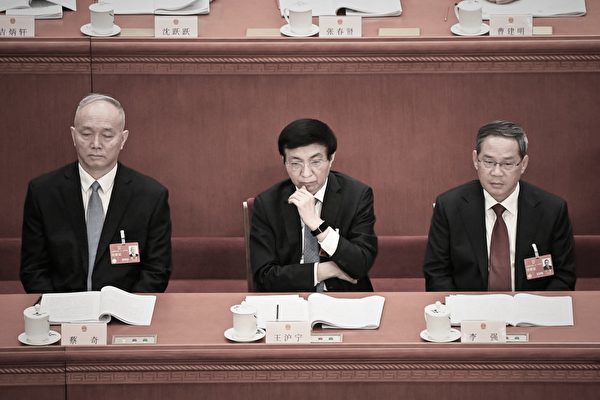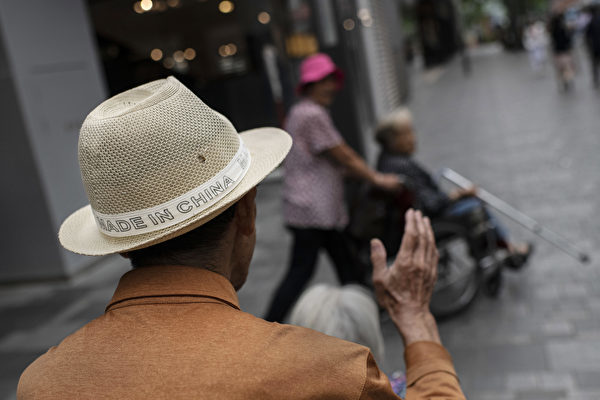Illustration: CCP Police Vehicle (China Photos/Getty Images)
[People News] According to multiple posts on platform X on April 22, a gun battle erupted between police and civilians on Quanjingyang Road in Linhai City, Taizhou, Zhejiang. Four special police officers were killed, two were seriously injured, one driver was shot dead by a suspect, two suspects were killed, and one person was arrested. The main suspect, Hong Tao, is still at large. The suspects are locals who returned from Southeast Asia and are reportedly linked to a northern Myanmar gang, sparking heated discussions online. The CCP's official response was a brief statement indicating that the case is under investigation, while mainstream media remained silent, and information was strictly filtered. This incident occurs amid a 145% tariff war and an economic downturn, highlighting the social crisis under CCP rule.
The Linhai gun battle was like a thunderclap, tearing apart the facade of stability under CCP rule. This rare conflict exposed the loopholes in gun control and further revealed the crises of economic difficulties, gang infiltration, and accumulated public grievances. The connection between the suspects returning from Southeast Asia and the northern Myanmar gang points to the disintegration of CCP rule, and the bloody gunfire in Linhai serves as a warning bell for the crisis.
The gun battle exposed the failure of the CCP's gun control. While it is a serious crime for Chinese civilians to possess firearms, the suspects returned home with weapons from Southeast Asia, indicating significant border and intelligence loopholes. A report by Radio Free Asia in 2024 stated that northern Myanmar gangs have infiltrated the coastal areas, and gun smuggling is rampant. The CCP's myth of
The economic crisis serves as a deeper underlying cause. The 145% tariff war has dealt a severe blow to Zhejiang's economy, with exports to the U.S. projected to account for 16% of total exports in 2024. The wave of bankruptcies among small and medium-sized enterprises in Taizhou has intensified unemployment. A report by Caixin on April 22 indicates that the youth unemployment rate in Zhejiang has reached 18%. Some suspects may have turned to gangs out of economic desperation, with one user on X expressing: 'With no job, I can only take the desperate path.' The infiltration of gangs and rising public discontent are exacerbating the crisis, while the Chinese Communist Party's (CCP) heavy-handed approach to maintaining stability is leading to increased violent resistance.
The Linhai gun battle reflects the governance crisis faced by the CCP. The public security crisis reveals the weakness of law enforcement, as evidenced by the deaths of four special police officers, which highlights ineffective policing. Netizens mockingly question: 'With police at this level, how can they maintain stability?' Information blockades are deepening the trust crisis, with official communications being vague and provoking public backlash. Some citizens are asking: 'If the police are dead and dare not report it, what kind of system is this?'
The convergence of economic and social crises is particularly deadly. The tariff war, the collapse of the real estate market, and local debts amounting to 90 trillion yuan are overwhelming finances, leaving the government unable to support the unemployed. The Linhai gun battle bears similarities to the Zhuhai vehicle ramming incident in 2024, which resulted in 35 deaths, indicating a normalisation of violence at the grassroots level. Netizens are predicting: 'More violent incidents are on the way.' The CCP's international isolation and internal unrest leave the crisis with no escape.
The Linhai gun battle serves as a bloody warning of the crisis under CCP rule. The failure of gun control, economic despair, gang infiltration, and accumulated public grievances have created a volatile situation. The CCP's oppressive stability measures and information blockades will only exacerbate the crisis, and more bloody crises may be imminent, putting the CCP's rule in a precarious position.
(First published by People News)









News magazine bootstrap themes!
I like this themes, fast loading and look profesional
Thank you Carlos!
You're welcome!
Please support me with give positive rating!
Yes Sure!